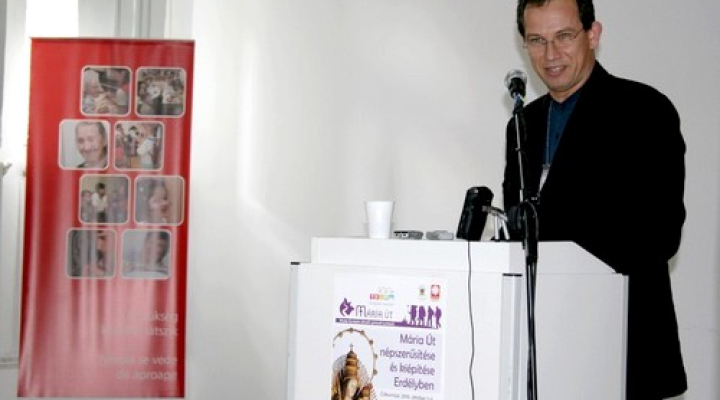EP protest against the infringement of language rights in Tibet
This week’s plenary session of the European Parliament saw the debate on the joint motion for a resolution about the attempt of the Chinese authorities to suspend native language education in Tibet. The motion, proposed by MEP Thomas Mann (German, EPP) and signed by 48 other MEPs was discussed in the traditional human rights debate on Thursday afternoon. The motion comes after the Chinese government announced a new educational program that would introduce Cantonese Chinese as the sole official language of education.
MEPs agreed that the Chinese government’s initiative is an infringement of the language rights of the Tibetan minority since these are protected by law in China. MEP Csaba Sógor reminded his colleagues that even though it is remarkable that the European Union contributes to the protection of language rights at a global level, in some respect it does not match its own standards.
„I am calling for the attention of all my colleagues who support this motion that unfortunately these principles are not being upheld in some European member states. The current State Language Law in Slovakia and the Romanian educational law that allows for some subjects to be taught in the state language proves this” – said the MEP. During the vote on the motion, MEPs supported the initiative with only the abstentions and no votes against.
Here follows the Csaba Sógor’s entire speech:
It is with great pleasure that I support this motion since it clearly formulates the principles that I can feel as my own as a representative of a traditional national minority. Thus, I support the notions that the infringement of language rights affects the fundamental rights of the minority citizens; that education in one’s mother tongue is the most adequate for acquisition of knowledge and that local communities should acquire decision rights in matters regarding the language of education. I am calling for the attention of all my colleagues that support this motion that unfortunately these principles are not being upheld in some member states. The current State Language Law in Slovakia and the Romanian educational law that allows for some subjects to be taught in the state language proves this. And I could mention other member states as well. I am dedicated supporter of paying attention to the situation of fundamental rights outside the EU, but I also consider that we need to address practices from within the EU that are detrimental to the national minorities.
„I am calling for the attention of all my colleagues who support this motion that unfortunately these principles are not being upheld in some European member states. The current State Language Law in Slovakia and the Romanian educational law that allows for some subjects to be taught in the state language proves this” – said the MEP. During the vote on the motion, MEPs supported the initiative with only the abstentions and no votes against.
Here follows the Csaba Sógor’s entire speech:
It is with great pleasure that I support this motion since it clearly formulates the principles that I can feel as my own as a representative of a traditional national minority. Thus, I support the notions that the infringement of language rights affects the fundamental rights of the minority citizens; that education in one’s mother tongue is the most adequate for acquisition of knowledge and that local communities should acquire decision rights in matters regarding the language of education. I am calling for the attention of all my colleagues that support this motion that unfortunately these principles are not being upheld in some member states. The current State Language Law in Slovakia and the Romanian educational law that allows for some subjects to be taught in the state language proves this. And I could mention other member states as well. I am dedicated supporter of paying attention to the situation of fundamental rights outside the EU, but I also consider that we need to address practices from within the EU that are detrimental to the national minorities.











